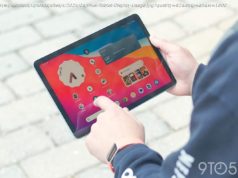The Supreme Court ruled in Apple Inc. v. Pepper that consumers do have the standing to sue Apple, and it opens up a major antitrust threat to Apple’s App Store business.
The Supreme Court ruled 5-4 against Apple on Monday in a case involving the App Store, the only way for most iPhone and iPad users to download software.
iPhone users had argued that Apple’s 30% commission on app sales had inflated prices for iPhone software, and Apple had argued that consumers didn’t have the standing to sue because Apple was merely providing a marketplace for the apps — in Apple’s argument, only the app developers had standing to sue for antitrust.
The Supreme Court ruled in Apple Inc. v. Pepper that consumers do have the standing to sue Apple, opening up a major antitrust threat to Apple’s App Store business. Monday’s decision was primarily procedural, but future court battles stemming from the decision could rage on for years to come. To win a lawsuit, consumers would have to prove they’ve been harmed by Apple’s bottleneck on software distribution on its platform in the form of higher prices.
„Apple’s line-drawing does not make a lot of sense, other than as a way to gerrymander Apple out of this and similar lawsuits,“ wrote Justice Brett Kavanaugh in the majority decision.






